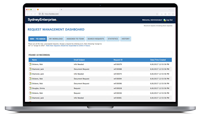Book Review: Verified by Mike Caulfield and Sam Wineburg
Lauren Hays
In an age of misinformation and an exorbitant amount of new information created daily, we must consider how to teach others to evaluate content specifically.
The Special Libraries Association has a list of core competencies for information professionals. One of those core competencies is Information and Knowledge Resources. One of the elements under that area is “teaching others to critically evaluate information and information sources.”
With that in mind, I want to offer my review of the book Verified: How to Think Straight, Get Duped Less, and Make Better Decisions about What to Believe Online by Mike Caulfield and Sam Wineburg.
Teaching others to evaluate online content is a skill that relates to my recently published post on Critical Thinking and the Role of Special Librarians. Someone must have content knowledge to think critically about a topic. The importance of being well informed will only grow in the age of AI. If you did not read that post, I encourage you to return to it.
The book Verified offers practical skills that align well with the need for content knowledge. It introduces ways of searching on the web that helps an individual verify what they are reading. These skills include the SIFT Method, lateral reading, using Wikipedia, how to use Google well, and others.
It is an easy read with examples and images to support the text. Each chapter ends with key takeaways that summarize the chapter and help you remember what you might want to mention to others.
The postscript for the book discusses generative AI, and posits ideas about what the future may look like for evaluating sources. While that section of the book is short, it provides good items for reflection. As generative AI becomes even more embedded in our lives, I hope the authors consider providing additional practical resources to help us all evaluate AI-produced content.
My department is using it as our book club read this fall. Even though we all have a great deal of expertise on the topic of searching, we are still finding the book helpful. We find it particularly useful when considering how we talk to others about evaluating sources.
If I had to give an overarching review of this book, I would say it should be required reading. It gives practical advice in an easy-to-digest style. Readers of the book will come away more confident in their ability to evaluate what they locate online, and if the skills are applied, readers will “get duped less often”.
Lauren Hays
Dr. Lauren Hays is an Assistant Professor of Instructional Technology at the University of Central Missouri, and a frequent presenter and interviewer on topics related to libraries and librarianship. Please read Lauren’s other posts relevant to special librarians. Learn about Lucidea’s powerful integrated library systems, SydneyDigital, and GeniePlus, used daily by innovative special librarians in libraries of all types, sizes and budgets.
**Disclaimer: Any in-line promotional text does not imply Lucidea product endorsement by the author of this post.
Never miss another post. Subscribe today!
Similar Posts
Growing Your Leadership Skills: 7 Tips for Special Librarians
Great library leaders aren’t born—they’re made through learning self-reflection and practice. Here are seven strategies to help you grow and lead with impact.
Keeping Up with Copyright and Generative AI: What Special Librarians Need to Know
As generative AI becomes more prevalent copyright law is evolving to address its impact. A new report from the U.S. Copyright Office provides guidance on what is (and isn’t) copyrightable.
Understanding Shadow AI: Risks Costs and Governance
AI can enhance search discovery and efficiency but unsanctioned adoption—known as “shadow AI”—can lead to budget overruns and compliance risks. Here’s how to evaluate AI pricing models and build a governance strategy that balances innovation with cost control.
Interview with an Author: Fernandez on Streaming Video Collection Development
As demand for streaming video in libraries grows so do the challenges of managing access budgets and licensing. Co-author Michael Fernandez shares key insights from his book “Streaming Video Collection Development and Management”.







Leave a Comment
Comments are reviewed and must adhere to our comments policy.
0 Comments